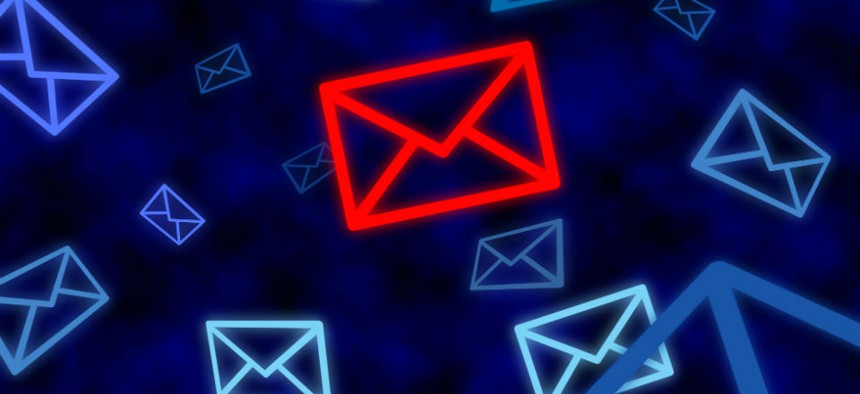Google Is Making It Harder for the Government to Spy on Your Emails

Balefire/Shutterstock.com
The company is doing its part to "Reset the Net."
Edward Snowden's biggest fear about leaking the secrets of the National Security Agency's surveillance, he said via video at an event Thursday, was that no one would care. The hundreds of people who gathered to see him talk on a screen spoke to the contrary.
The Personal Democracy Forum, hosted in New York City by the digital privacy crusaders at the Electronic Frontier Foundation, marked the one-year anniversary of Snowden's NSA leaks. The event also served to promote the Reset the Net campaign, which is trying to get Internet denizens to protect themselves and fellow Web users against surveillance. The group hopes to do this by disseminating a "privacy pack" of software, which contains programs users can download to protect their various data, and by encouraging websites to secure their users' data (using tools such as HTTPS) within the year. Bold-face companies like Google, Reddit, Mozilla, Twitter, and Yahoo have already signed onto Reset the Net's pledge to protect user data.
That's not all Google is doing. On Tuesday, the tech giant announced it will start offering end-to-end encryption for Gmail accounts. What does that mean? In the past, the NSA could theoretically tap into Google's data centers to retrieve users' email information. With end-to-end encryption, only the email's sender and recipient can access the pass phrase they need to read the message.
During his talk, Snowden touted Google's new encryption plug-in as a step in the right direction. "We're past the point where citizens need to depend on the government to defend their rights," he told the friendly audience. "We don't have to ask for our privacy. We can take it back."
Perhaps unsurprisingly, outbound messages sent from Americans' Comcast, Verizon, and Apple email accounts are completely unencrypted. AT&T's domain, att.net, encrypts fewer than half of its outbound emails. By comparison, Gmail encrypts 71 percent of outbound messages and 49 percent of inbound messages. But Google started encrypting its users' emails only in December 2013—six months after the Snowden leaks came to light.
"All I did was return information to public hands that never should have been taken out of them in the first place," Snowden said Thursday. Now that that information is in the public's hands, the private sector has to decide which side to take in the privacy debate—or maintain the status quo and hope that nobody notices.
(Image via Balefire/Shutterstock.com)






